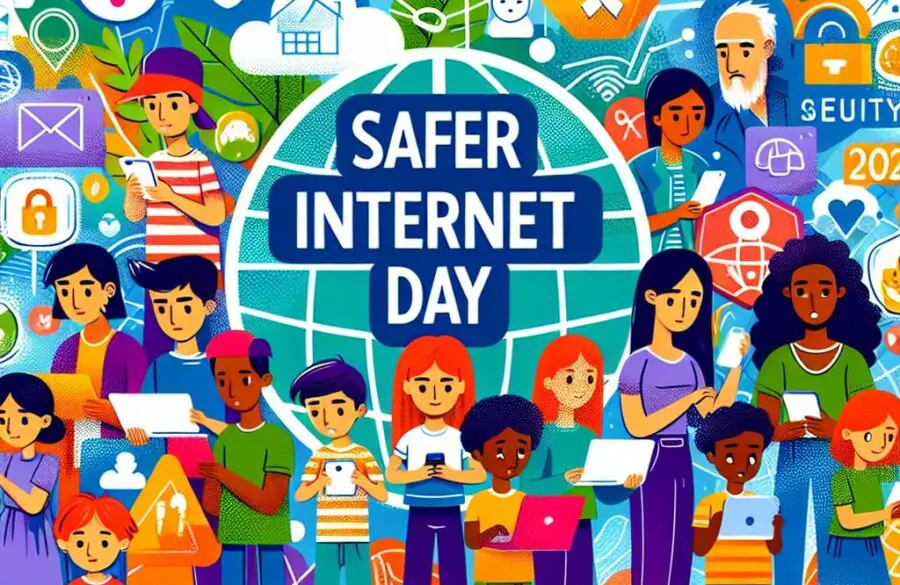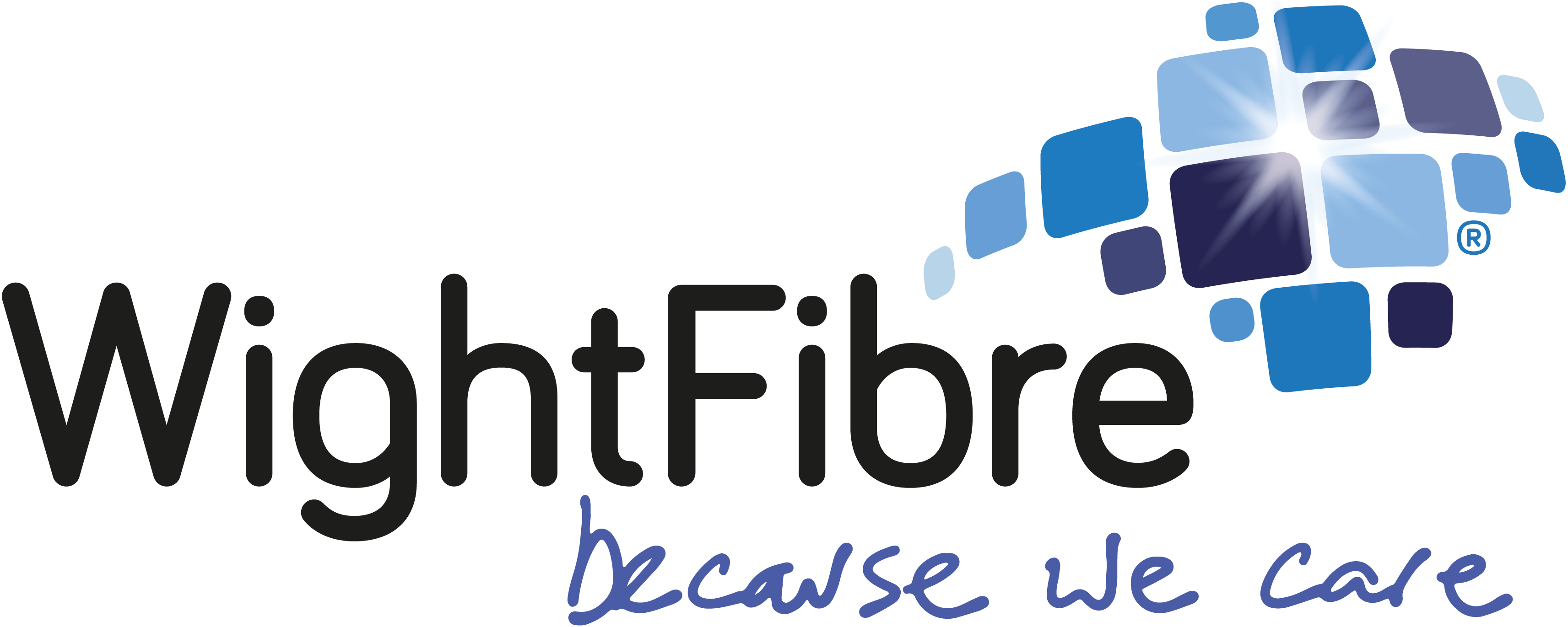Fair Usage Policy
Introduction
Broadband services are based on the concept of shared capacity. Properly used this gives good value and performance to all. However it is necessary for us to have a set of usage parameters that all our customers should follow so that the Broadband experience is uniformly good for all.
General
We believe that this policy is generally a matter of common sense and courtesy to others. The vast majority of users will be able to use their own judgement as to what is appropriate to guide their behaviour when sending email and using the Internet and will have no problem in conforming to this policy.
A very small number of customers use Peer to Peer or file sharing applications. These applications are designed to constantly send and receive files at high data rates over extended periods of time. This type of activity uses a lot of bandwidth and can significantly reduce the speed at which other customers can access the Internet during peak hours. We do not believe this is fair to the vast majority of our customers.
This fair usage policy allows us to identify the very small number of extremely heavy users and manage their bandwidth during peak hours, to protect the service for all our other customers. Outside peak hours, the use of the Internet by these heavy users is largely unaffected.
We think this is the fairest approach. It protects the quality of service for the vast majority of our customers when they most use the service, while at the same time allowing the extremely heavy users to continue to send and receive without restriction outside of peak hours.
Will the Fair Usage Policy affect me?
If you don’t use Peer to Peer or file sharing software it is unlikely you will ever be affected by this Fair Usage Policy. If you do use Peer to Peer or file sharing software, all we ask is that you use this software considerately and send and receive large files outside of peak hours.
If you are affected, we will contact you by email to let you know that your usage at peak hours is excessive and is affecting other customers. The email will be sent to your contact email address and will contain simple advice on how to reduce your usage.
If your usage is still excessive, we will contact you again by email to ask you to reduce your sending and receiving of large files during peak hours. If your usage still remains excessive during peak hours, we will contact you a third time to advise you that we will be restricting your bandwidth during peak hours for the good of all other customers. This restriction will only apply during peak hours and there will be no restriction at other times of the day.
Fair Use Policy – Internet Use
For the general guidance of our customers:
- Customers must not use the Service for any illegal purpose. Customers should be aware that some material is illegal to possess or transmit. Customers should also note that unauthorised access to computer systems may be an offence; although many machines connected to the Internet are placed there so that the customer may access them, it does not follow that the customer may access any computer he or she comes across in any manner they choose.
- We are not responsible for the content of external sites.
- Traffic over the Internet may traverse other networks, or use other services, which are not owned or operated by WightFibre. We expect that our customers will abide by the Fair Usage Policy and other terms and conditions imposed by the operators of those networks and services.
- Customers must not send packets onto the Internet, which have forged addresses or which are deliberately constructed to adversely affect remote machines.
- Customers may not run “scanning” software which accesses remote machines or networks, except with the explicit permission of the owner of those remote machines or networks.
- Customers must ensure that they do not further the sending of unsolicited bulk email or any other form of email or Usenet “abuse”. This applies to both material that originates on your system and also third party material that passes through it.
- Customers must not run an “open mail relay”, viz. a machine which accepts mail from unauthorised or unknown senders and forwards it onward to a destination outside of your machine or network. If your machine does relay mail, on an authorised basis, then it must record its passing through your system by means of an appropriate “received” line.
- Where applicable, customers are required to accept email addressed to “postmaster” at their address. Customers will be deemed to have read any and all such email. We may take action on the basis of this assumption.
- Whilst connected to the Internet, your system must conform to all relevant IETF (Internet Engineering Task Force) standards.
- Customers must not use the Service in any way that is unlawful or illegal or in any way to the detriment of other Internet users. Customers also must not allow anybody using your connection to use the Services in any way that is unlawful or illegal or in any way to the detriment of other Internet users
- Customers are prohibited from storing, distributing, transmitting or causing to be published any Prohibited Material through your use of the Services. Examples of “Prohibited Material” shall be determined by us (acting in our sole discretion) and shall include (but are not limited to) material that: is threatening, harassing, invasive of privacy, defamatory, racist, obscene, indecent, offensive, abusive, harmful or malicious; infringes or breaches any third party’s intellectual property rights (which shall include, but not be limited to copyright, trade mark, design rights, trade secrets, patents, moral rights, paternity rights and performance rights) – this includes the use, distribution and/or copying of any material without the express consent of the owner; is in violation of any law or regulation that is enforceable in the United Kingdom; unsolicited promotional or marketing material; chain letters or pyramid selling schemes; and programs containing viruses, hoaxes or any tools designed to compromise the security of other websites and/or systems.
- For the avoidance of doubt, the storage upon and/or distribution over our systems by any User of “pirated” software, or any other materials that are not expressly licensed to the User, will constitute a violation of this Fair Usage Policy.
- We reserve the right to inform and/or report the storage, distribution, transmission, retransmission or publication of Prohibited Material (and/or any other materials which may constitute unlawful conduct by Users) to relevant authorities and/or regulators.
Fair Use Policy – Email
To qualify as “abuse”, an act must interfere with the use of the network by an individual or group of individuals in some specific way, for example by consuming resources or wasting others time. The term “abuse” also includes:
- Chain Letters, “Make Money Fast” and other Ponzi Pyramid-Selling Schemes.
- Unsolicited Commercial Email (UCE) – advertising material sent and received by email without the recipient either requesting such information or otherwise explicitly expressing an interest in the material advertised. It should be noted that a user has not expressed an interest by the mere act of posting a news article in any particular newsgroup, or by visiting a website, unless of course they have made a specific request for information to be emailed to them.
- Unsolicited Bulk Email (UBE) – Similar to UCE, but differing in that it is not attempting to sell anything.
- Forged Headers and/or Address’s – sending email such that its origin appears to be another user or machine, or a non-existent machine. It may also be improper to arrange for any replies to the email to be sent to some other user or machine.
- Mail Bombing – sending of multiple emails, or one large email, with the sole intent of annoying and/or seeking revenge on a fellow Internet user.
- Denial of Service Attacks – any activity designed to prevent a specific host on the Internet making full and effective use of its facilities. This includes, but is not limited to: Mail Bombing.
- Opening an excessive number of email connections to the same host.
- Intentionally sending email designed to damage the receiver’s systems when; for example, sending malicious programs or viruses attached to an email.
- Using a smart host or email relay without authorisation to do so.
- Mailing List Subscriptions – schemes for distributing copies of the same email to many different people. It is not acceptable to subscribe anyone to any mailing list or similar service, unless their explicit permission has been given. List owners are encouraged to confirm all subscription requests by requesting confirmation from the apparent subscriber before starting to send any list email. They must ensure that unsubscribe requests are handled efficiently. It is not acceptable to subscribe people to a list merely because they have visited your web site or used one of your products; the person must make an explicit request to be listed.
WightFibre reserves the right to amend this policy at any time without the need for giving prior notice.





